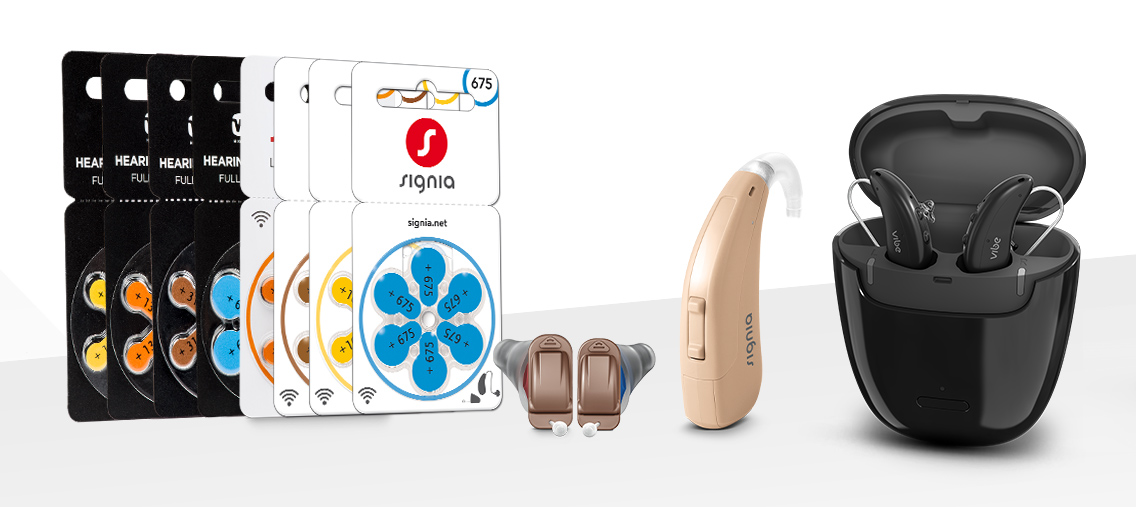Hearing and hearing loss

The human ear consists of three parts – the outer, middle, and inner ear.

Outer ear: The outer ear picks up sound and transmits it to the eardrum via the ear canal.
Middle ear: Sound waves cause the eardrum to vibrate. The ossicles, called malleus, incus, and stapes, pass the vibration on to the inner ear.
Inner ear: The cochlea converts movements of the ossicles into electrical signals. The auditory nerve transmits the signals to the brain.
The following video demonstrates how hearing works:
Hearing loss
Hearing loss generally develops slowly over many years; the effects become apparent only gradually. This makes it difficult for those affected to recognize that they are actually suffering from a hearing impairment. Relatives, friends or colleagues are often the first to realize that something is wrong.
However, there are clear signs that your hearing is not entirely as it should be. Perhaps you find it difficult to understand phone conversations clearly? Does your family complain about the volume when you are listening to the radio or television? Do you find it difficult to follow a conversation in a restaurant or when there is a lot of noise in the street around you? Do you often feel exhausted after family celebrations because listening is such an effort? Do you hear better when you are able to look at the person talking to you?
All these are typical signs of a hearing impairment. But don’t worry; hearing loss is not something simply to be endured. You can – and should – do something about it.
Many people find it hard to come to terms with the idea of wearing hearing aids. They put off the decision and only do something about it when the problems associated with poor hearing simply become too much for them.
Still, the earlier you do something about hearing loss, the better. Even when hearing is just starting to deteriorate, hearing aids help to maintain neural pathways in your brain responsible for hearing all the sounds around you. The longer you put off hearing aids, the harder it will be for you to get used to them when you do finally wear them, and more importantly, the more you’ll miss out in life.
Possible impacts of hearing loss:
- Decreased attention
- Diminished understanding of speech
- Trouble communicating with others
- Diminished memory
- Less willing to embrace the unknown
- Declining job performance
- Lack of acknowledgement by others
- Irritability, stress, depression
- Withdrawal from social life, isolation
Hearing impairments can occur in all parts of the ear; dysfunctions of the outer or middle ear can generally be treated with medication or surgery. However, a good 80 % of all hearing impairments are caused by dysfunctions of or damage to the inner ear. Today, modern hearing aids can compensate for most inner ear damage.
However, no two cases of hearing loss are the same. Most often people with a hearing impairment are unable to distinguish soft tones and high-pitched sounds and have difficulties hearing sounds such as whispers, children’s voices or birdsong.
This video helps to understand hearing loss:
Binaural hearing: two ears hear better than one
Nature gave us two ears for a reason: Binaural Hearing, or hearing with both ears, helps us localize sounds no matter where they come from. It also allows us to precisely focus on what we want to hear by letting us perceive certain sounds like speech louder and clearer while ignoring others. A few of the most important binaural processes include binaural redundancy, binaural squelch, and binaural directed listening.
Binaural redundancy
Binaural squelch
Binaural directed listening
Take action now
It is only when hearing starts to deteriorate noticeably that we realize just how important good hearing is in our everyday lives. And how much we miss out when we no longer hear well.Why take action as soon as possible?

Hearing loss is a gradual process
Hearing loss is usually a gradual process that takes many years – so gradual that we don’t immediately recognize its negative effects in our lives.
Untreated hearing loss impacts our lives
Communication problems with family, friends, and colleagues can lead to irritability, stress, isolation, and even depression.
The sooner the better
The earlier we are properly fit with hearing aids, the better, even if you only have slight hearing loss.
Training your brain
When you hear well again with hearing aids, the brain is stimulated and mental vitality is maintained.
Get more out of life
Quality of life is enhanced, resulting in unrestricted interpersonal communication and social interaction.
Being able to hear well again has many positive effects. Studies show that the large majority of hearing aid wearers are very or extremely satisfied with their hearing aids. Experienced users report that their social contacts, as well as their physical and mental well-being, have improved markedly. They feel fitter and much more ready to take on new things.
Be open to your new hearing experiences. It will improve your quality of life.







Leave a comment